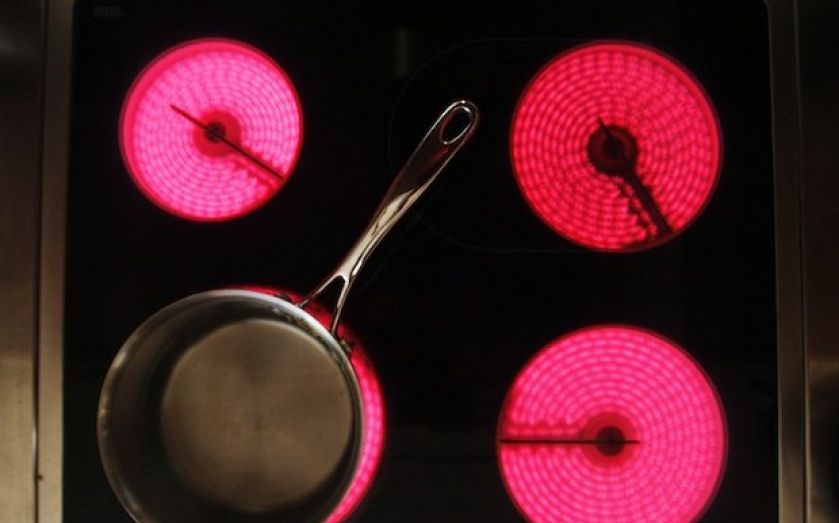We can bring down UK energy costs without Miliband’s populist price fix

WELL, no one can say we don’t know what Ed Miliband stands for any more. Whacking business with higher taxes, strangling them with regulation, expropriating land from owners who don’t develop, and reversing benefit cuts. The list of Wonga policies – superficially attractive in the short term, punitively expensive in the long term – was topped off by the pledge to fix energy prices, a dangerous idea that would inflate household bills and damage the economy.
Homes and businesses have felt the pinch of rising energy bills in recent years. We are more exposed to fluctuating international prices, because of ebbing energy independence. North Sea oil production has declined rapidly, while the last government presided over the closure of six nuclear power plants. Falling domestic supply was matched by regulatory zeal – especially Labour’s arbitrary green subsidies that inflated bills, but did little to provide affordable supply on the scale Britain needs. Based on assumptions from Ofgem, the energy regulator, environmental charges now make up around £200 of the average energy bill (despite being rowed back, in part, by the coalition).
Miliband was energy secretary under Gordon Brown, so he bears a lot of responsibility for today’s challenges. His attacks on big energy companies can’t hide the fact that fuel poverty doubled on Labour’s watch. Still, Miliband is right about one thing. The UK energy market is gummed up. The six big UK energy suppliers account for 98 per cent of the market. They may not engage in price-fixing, but the lack of competition is palpable. A 2012 survey for consumer magazine Which? found that none of the Big Six ranked above ninth place for customer satisfaction.
However, the answer is not temporary price controls, as the Labour leader announced. That is an open invitation to energy companies to hike prices before the next election to insure against the odds of a Labour win. Likewise, any temporary controls would risk being matched by a spike when they were lifted – when tried in California, prices soared once controls were eased.
Energy companies were quick to warn that price controls would repel much needed investment. Sir Roger Carr, chairman of Centrica, lambasted the policy as a “recipe for economic ruin”. Trade body, Energy UK, and the Confederation of British Industry warned the plan would cost jobs and threaten energy supply. Miliband dismissed the reaction of the energy industry as special pleading – which is true – but that doesn’t mean their forecasts are wrong. Centrica lost almost £1bn in market value, as its shares tumbled in response to the Labour leader’s speech.
All this at a time of an energy drought. In June, Ofgem warned our back-up energy stocks will fall to 2 per cent by 2015, with the risk of blackouts quadrupling. Miliband’s gambit would massively exacerbate the risk of the lights going out. And what would he do if international gas prices spiked? Having staked his reputation on freezing gas bills, Prime Minister Miliband could easily be sucked into matching Brown’s banking bailout with one for energy companies.
What should we do instead? The government’s strategy of replacing nuclear power stations and exploiting our unprecedented shale gas reserves is right, but we need to expedite delivery and wean energy companies off the arbitrary subsidies inflating bills. That doesn’t mean giving up on renewables. But the state should fund research and development, not pick commercial winners.
When it comes to freeing up the monopolised energy market, the answer is more competition not price controls. The coalition is already injecting greater transparency into the sector, by requiring a consolidation of the hundreds of tariffs on offer. We should go further. In 2012, Which? organised a reverse auction with suppliers that saw 38,000 energy customers exercise their collective bargaining power, cutting an average of £223 from annual bills. Not only does this approach promote competition and encourage new entrants to deliver better deals – Co-operative Energy won, rather than any of the Big Six – it does so by putting the consumer in charge. Government could back this grassroots initiative, by supporting the development of a web-based switching facility, which is quick and easy to use. This might add some extra costs for energy firms, but they could be covered by a temporary tax break for suppliers that sign up.
An overhaul of the energy sector, spurred by increased competition that puts customers in charge, is the way to match Miliband’s populist appeal – without inflicting the economic damage of a state-orchestrated takeover.
Dominic Raab is the Conservative MP for Esher & Walton.
- Labour wipes billions off energy firms as price freeze predicted to cost £6.8bn
- Mandelson says Miliband taking party backwards
- Q and A: What determines our gas and electricity bills?
- Freedom and liberty: The dangerous words our politicians ignore